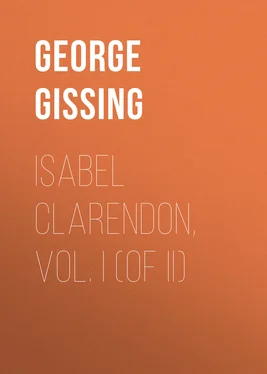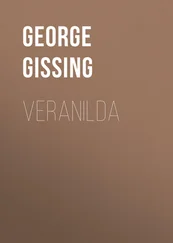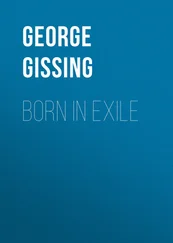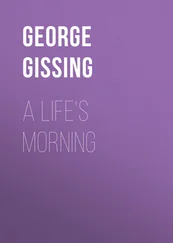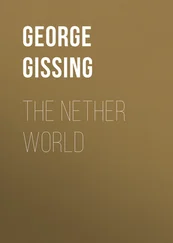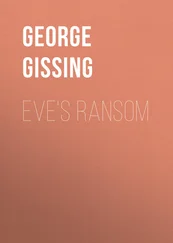George Gissing - Isabel Clarendon, Vol. I (of II)
Здесь есть возможность читать онлайн «George Gissing - Isabel Clarendon, Vol. I (of II)» — ознакомительный отрывок электронной книги совершенно бесплатно, а после прочтения отрывка купить полную версию. В некоторых случаях можно слушать аудио, скачать через торрент в формате fb2 и присутствует краткое содержание. Жанр: foreign_prose, literature_19, foreign_antique, на английском языке. Описание произведения, (предисловие) а так же отзывы посетителей доступны на портале библиотеки ЛибКат.
- Название:Isabel Clarendon, Vol. I (of II)
- Автор:
- Жанр:
- Год:неизвестен
- ISBN:нет данных
- Рейтинг книги:4 / 5. Голосов: 1
-
Избранное:Добавить в избранное
- Отзывы:
-
Ваша оценка:
- 80
- 1
- 2
- 3
- 4
- 5
Isabel Clarendon, Vol. I (of II): краткое содержание, описание и аннотация
Предлагаем к чтению аннотацию, описание, краткое содержание или предисловие (зависит от того, что написал сам автор книги «Isabel Clarendon, Vol. I (of II)»). Если вы не нашли необходимую информацию о книге — напишите в комментариях, мы постараемся отыскать её.
Isabel Clarendon, Vol. I (of II) — читать онлайн ознакомительный отрывок
Ниже представлен текст книги, разбитый по страницам. Система сохранения места последней прочитанной страницы, позволяет с удобством читать онлайн бесплатно книгу «Isabel Clarendon, Vol. I (of II)», без необходимости каждый раз заново искать на чём Вы остановились. Поставьте закладку, и сможете в любой момент перейти на страницу, на которой закончили чтение.
Интервал:
Закладка:
This narration, given with much quiet humour, made Mrs. Clarendon and Rhoda laugh. Ada Warren had resumed her review, or at all events had it lying open on her lap, and showed no smile. Robert watched her with his quiet eyes. In Miss Meres he seemed to have little interest, and he looked far more frequently at Ada than at Mrs. Clarendon.
“By-the-bye, some one we passed on the road,” he said presently. He had a curious habit of mentioning in this disjointed way the subject of the remark he was about to make, and, so reposeful was his habit of speech, it often seemed as if the comment would never follow. “A young man, rather good-looking, or perhaps, rather noticeable. My friend the groom told me he was a settler in these parts; a gentleman who has taken a labourer’s cottage, and lives in a more or less eccentric way. It sounded interesting. Do you know anything of him?”
“Oh yes,” said Isabel, “our rector, Mr. Vissian, knows him, and speaks of him in superlatives. His name is Kingcote.”
“But what is he doing here?—reading, rusticating? I suppose he’s taken the cottage just for the summer months?”
“Mr. Vissian says he has settled here for good—a philosopher, who is tired of town life. He comes from London. I haven’t been favoured with a glimpse of him yet, but several people have spoken of him. I think I must ask Mr. Vissian to bring him here.”
“A month or so of summer would be pleasant, spent in that way,” observed Mr. Asquith; “but to settle finally! Something morbid about him, I suppose; he looks, in fact, rather bloodless, like a man with a fixed idea. Ten to one, he’s on precisely the wrong tack; instead of wanting more of his own society, he ought to have less of it. I suppose he lives alone?”
“Quite.”
“The worst thing for any man. I shouldn’t dare to converse with myself exclusively for two consecutive days. The great, preservative of sanity is free intercourse with one’s fellow men—to see the world from all points, and to refrain from final conclusions.”
Chat of this kind went on for a few minutes, all taking part in it except Ada.
“You are fond of the country, Miss Warren,” Asquith said at length, addressing the latter directly.
“Yes, I’m fond of the country,” was the reply, given in a mechanical way, and with a cold, steady look, whilst she ruffled the edges of her review. Asquith had found it at first difficult to determine whether the peculiarity of the girl’s behaviour were due to excessive shyness or to some more specific cause; but shyness it certainly was not, her manner of speaking and of regarding him put that out of the question. Did she, then, behave in this way to every stranger, or was he for some reason personally distasteful to her; or, again, had something just happened to disturb her temper?
“Your liking for it, though, would scarcely go to the extent of leading you to take up a solitary abode in a labourers cottage?”
“I can’t say,” Ada replied slowly. “One is often ready to do anything for the sake of being left alone.”
“Ada would stipulate, however, to be supplied with the Fortnightly or the Nineteenth Century ,” put in Mrs. Clarendon laughingly.
“If anything could drive me into the desert,” was Robert’s remark, “it would be the hope of never again being called upon to look at them. I shouldn’t wonder if Mr.—Mr. Kingcote, isn’t it?—has fled from civilisation for the very same reason. Probably he has cast away books, and aims at returning to the natural state of man.”
“By no means,” said Isabel. “He has brought down quite a library.”
“Alas!” exclaimed Robert, with a humorous shaking of the head, “then he is, I fear, engaged in adding to the burden which oppresses us. No wonder he hides his head; he is writing a book.”
“Perhaps he is a poet, Mrs. Clarendon,” puts in Rhoda.
“Perhaps so, Rhoda; and some day we may have pilgrims from all corners of the earth visiting the cottage he has glorified.”
“With special omnibuses from Winstoke station,” added Robert, “and a colony of licensed victuallers thriving about the sacred spot.”
“Let us be thankful,” exclaimed Isabel, “that a poet’s fame is usually deferred for a generation or two. Ha, there’s the first luncheon bell! It brings a smile to your face, Robert.”
“Did I betray myself? I confess I breakfasted early.”
The two girls walked towards the house together, their elders following more slowly.
“Isn’t Rhoda Meres a nice girl?” said Isabel, when the object of her remark was out of hearing.
“Very,” her cousin assented, though without enthusiasm. He seemed to be thinking of something else.
“The poor child has got a foolish idea into her head; she wants to go on to the stage.”
“Does she—ha? Most young people have that idea at one time or another, I believe. In default of a special audience of one, you see–”
“And she is such a good, dear girl!” pursued Isabel, when Asquith showed no sign of continuing. “Her father is a literary man, the editor of a magazine called Ropers Miscellany —do you know it? He and I are the best of old friends. Its only with the thought of helping her father, I’m sure, that Rhoda has taken up this fancy; we must drive it out of her head somehow.”
“Yes, I suppose so,” remarked Robert, more absently than before.
Isabel glanced at him, and kept silence till they reached the house.
There was nothing remarkable about the structure itself of Knightswell; the front was long and low, built of brick faced with stone, and the level entrance was anything but imposing. The main portion of the building was early eighteenth century, but in the rear there still existed a remnant of the sixteenth century manor-house which had once stood here; the ancient hall now served as kitchen, its fine stone fireplace being filled up with an incongruous modern range. The present hall was surrounded with oak panelling, which Mr. Clarendon had obtained at the dismantling of an old house in the neighbourhood; all else of the interior had become, by successive changes, completely modernised, with the exception of an elaborate chimney-piece in the drawingroom—massive marble-work resting on caryatides—always said, though without corroborative evidence, to be a production of Grinling Gibbons. The faces of the two supporters were curiously unlike each other: on the one side it was that of a youthful maiden, who smiled, and seemed to be upraising her arms in sport; the other was an aged but not unbeautiful face, wearing an expression of long-suffering sadness, worn under the burden which the striving arms sustained. In the dining-room were a few good pictures, taken with the house from the preceding occupants. For Knightswell was not the ancestral abode of Mr. Clarendon’s family; it had passed, by frequent changes, from tenant to tenant, all inglorious. Notwithstanding his historic name, Mr. Clarendon was a novus homo ; his father had begun life as an obscure stockbroker, had made a great fortune, and ended his life in a comfortable dwelling in Bayswater; his daughters, there were two, married reputably, and were no more heard of.
During luncheon Asquith was still much occupied in observing Ada Warren whenever he could unobtrusively do so. The young ladies were rather silent, and even Isabel showed now and then a trace of effort in the bright flow of talk which she kept up. Between herself and her cousin, however, there was no lack of ease; a graceful intimacy had established itself on the basis of their kinship, though not exactly that kind of intimacy which bespeaks life-long association. Their talk was of the present, or of the immediate past; neither spoke of things or people whose mention would have revived the memory of years ago.
Читать дальшеИнтервал:
Закладка:
Похожие книги на «Isabel Clarendon, Vol. I (of II)»
Представляем Вашему вниманию похожие книги на «Isabel Clarendon, Vol. I (of II)» списком для выбора. Мы отобрали схожую по названию и смыслу литературу в надежде предоставить читателям больше вариантов отыскать новые, интересные, ещё непрочитанные произведения.
Обсуждение, отзывы о книге «Isabel Clarendon, Vol. I (of II)» и просто собственные мнения читателей. Оставьте ваши комментарии, напишите, что Вы думаете о произведении, его смысле или главных героях. Укажите что конкретно понравилось, а что нет, и почему Вы так считаете.
